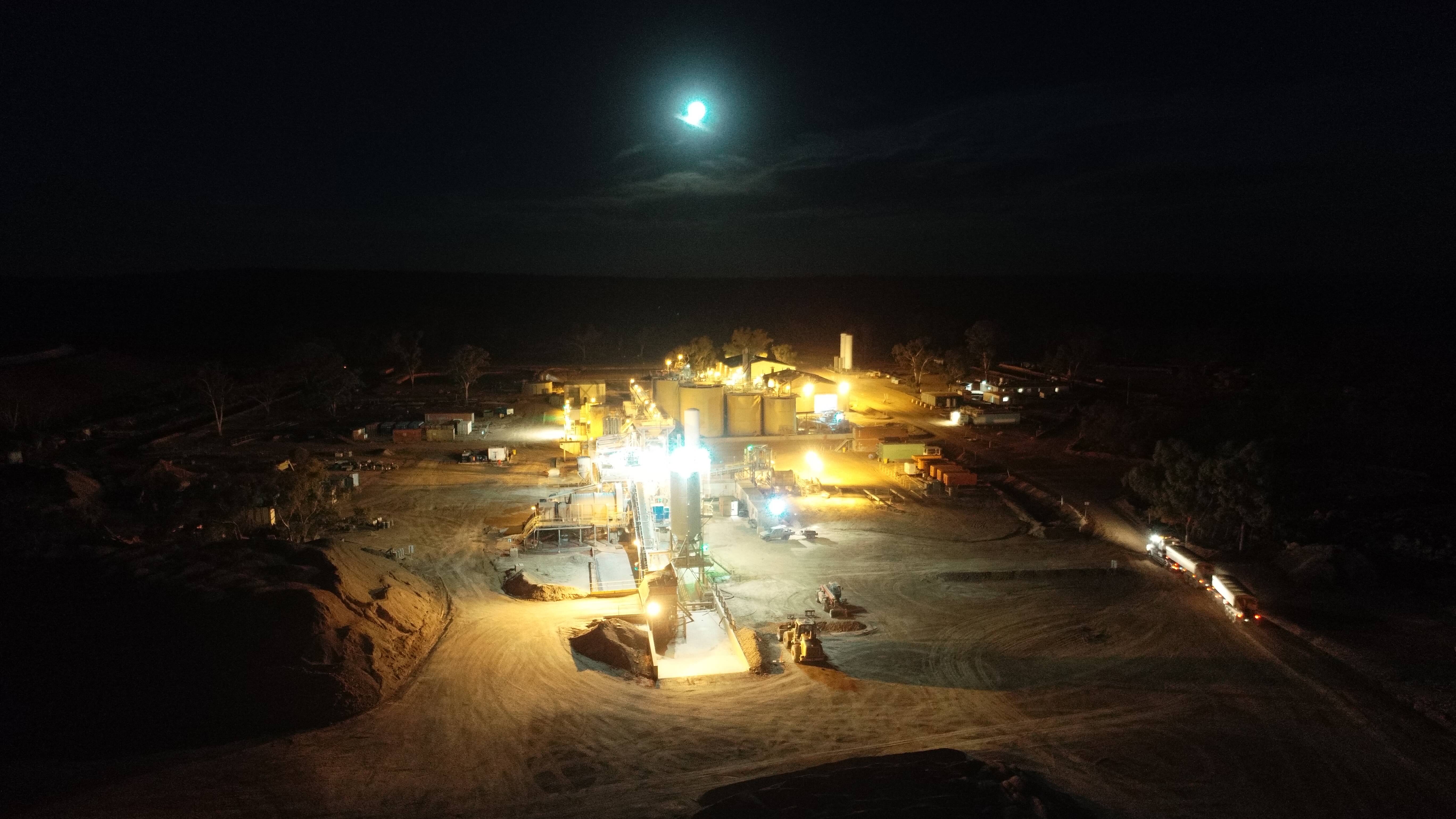January 17th, 2023 | 16:30 CET
Blackout warning in the south - here's what's behind it: BASF, Manuka Resources, NEL
Last Sunday, operators of power grids in Baden-Württemberg advised people to refrain from unnecessary power consumption from 5 pm onwards because otherwise, energy would have to be imported from abroad. Plans around the mandatory installation of smart electricity meters had previously been made public. This shows that the energy transition is coming - whatever the cost. We look at three shares with a green future at exciting chart points.
time to read: 4 minutes
|
Author:
Nico Popp
ISIN:
BASF SE NA O.N. | DE000BASF111 , Manuka Resources Limited | AU0000090292 , NEL ASA NK-_20 | NO0010081235
Table of contents:

"[...] We will trigger indirect creation of 1,665 new jobs nationwide, while directly employing 300 staff - 270 operational and 30 administrative. [...]" Dennis Karp, Executive Chairman, Manuka Resources Limited
Author
Nico Popp
At home in Southern Germany, the passionate stock exchange expert has been accompanying the capital markets for about twenty years. With a soft spot for smaller companies, he is constantly on the lookout for exciting investment stories.
Tag cloud
Shares cloud
BASF wants to produce its own electricity
Although the usage notice to electricity customers from Baden-Württemberg last Sunday was no more than a recommendation, the situation is becoming clear. If there is again, as happened recently, a significant imbalance between high energy production by wind power in the north of Germany and low feed-in of green electricity in the south, things could get tight. That is if neighboring countries are also unable to supply electricity to restore balance to the grids. Energy-intensive industries, such as BASF in Ludwigshafen, would then be particularly at risk. But the Palatinate-based company is taking countermeasures. BASF relies on low-emission production processes and has thus halved the Company's carbon footprint at its site in Canada.
In Germany, the situation is more complicated. Here, BASF is calling for lower network fees, which become due, for example, as soon as electricity has to be purchased externally. For this reason, BASF is also increasingly relying on self-produced electricity. However, this is particularly difficult in Germany in winter - wind farms are still rare, especially in the south. BASF shares have recently been receiving a tailwind from the operating business. The stock is considered one of the winners of the new year. Analysts like Goldman Sachs recently saw little potential, but investors should not let this unsettle them. Exchange rates, which Goldman Sachs cites as an obstacle to BASF's business, could change tomorrow. However, the momentum around BASF shares remains. If the stock jumps above the EUR 53 mark, it could quickly reach EUR 60 again.
Manuka Resources stands for large batteries and precious metals
One share that could become even more important in connection with stable power grids is Manuka Resources. The Australian company completed its acquisition of a giant vanadium project in New Zealand last year. According to Manuka CEO Dennis Karp, this mine alone could become the world's third-largest vanadium producer - accounting for 15% of the global vanadium supply after China and Russia. Vanadium is primarily found in so-called vanadium redox flow batteries, which are suitable for storing regenerative energy and releasing it to the grid when needed. In other words, precisely what the German power grid urgently needs these days. The Fraunhofer Institute for Chemical Technology (ICT) in Karlsruhe is currently researching the use of these electricity storage systems in conjunction with wind turbines. The initial conclusion is that the combination of wind power and battery can provide self-sufficiency for companies or settlements.
Manuka Resources is pursuing the goal of bringing its STB vanadium project into production by the end of 2026. It is already working on a bankable feasibility study to be completed in 2023. The two precious metals mines, Wonawinta and Mt Boppy are already generating cash. Between the two projects, Manuka Resources operates a processing plant that is currently still being used for both projects. "We have a single processing plant at Wonawinta designed to process both gold and silver. However, it is also important to note that we have a production permit for Mt Boppy and can add a dedicated gold processing plant at the mine if our resource inventory requires it. In addition, all the other infrastructure is already in place at Mt Boppy, including the power supply, tailings dam, mine camp and administrative offices. These two factors mean that once sufficient resources are identified, it would only take months, not years, to resume gold processing at Mt Boppy," Karp says. Manuka stresses that both precious metals projects have great exploration potential - neighbors such as Glencore, Aurelia and Talisman have succeeded in the Cobar Basin, particularly at depth. Manuka has not yet penetrated this region at all.

Capital increase as an opportunity: Anchor shareholder remains cool
Last December, delays caused by bad weather meant that Manuka Resources had to carry out a capital increase of AUD 4.1 million. All anchor shareholders remained on board. The major shareholder remains ResCap Investments, controlled by Executive Chairman Karp and Chief Operating Officer Haydn Lynch, the largest lender to Manuka. The confidence of existing shareholders, coupled with the prospect of cash flows and associated attractive financing opportunities in the future, remain. The recent setback in the share price may be an opportunity for investors. Manuka Resources combines battery fantasy and the solidity of precious metals in economically stable regions with a sustainable corporate credo. Take note of this stock!
NEL: Downward trend remains intact
Many investors have also made a note of the NEL share. The Norwegian hydrogen pioneer recently benefited from the hydrogen agreement between Germany and Norway. However, a look at the long-term chart shows a volatile downward trend over the year - most recently, the share bumped its head around EUR 1.60 and turned down again. Previous reversal points were just above EUR 1.60 and at EUR 1.89. Investors should be alert as the share is not taking off despite rising order volumes and the general hydrogen tailwind. Although there is operational potential, there is also growing competition from industrial companies that are now also "making hydrogen", for instance, thyssenKrupp.
While shares such as NEL have received a lot of praise from the market in recent years, solutions such as those from Manuka Resources have so far been viewed with skepticism. Investors who can assess prospects and see opportunities in vanadium redox flow batteries, for example, can take a closer look at the Australian company, which is only valued in the mid-double digits. The chart, in particular, should appeal to anti-cyclical investors. Procyclically, there are also opportunities with BASF. However, investors must bear in mind that setbacks in energy security could directly impact the chemical giant's share price.
Conflict of interest
Pursuant to §85 of the German Securities Trading Act (WpHG), we point out that Apaton Finance GmbH as well as partners, authors or employees of Apaton Finance GmbH (hereinafter referred to as "Relevant Persons") may hold shares or other financial instruments of the aforementioned companies in the future or may bet on rising or falling prices and thus a conflict of interest may arise in the future. The Relevant Persons reserve the right to buy or sell shares or other financial instruments of the Company at any time (hereinafter each a "Transaction"). Transactions may, under certain circumstances, influence the respective price of the shares or other financial instruments of the Company.
In addition, Apaton Finance GmbH is active in the context of the preparation and publication of the reporting in paid contractual relationships.
For this reason, there is a concrete conflict of interest.
The above information on existing conflicts of interest applies to all types and forms of publication used by Apaton Finance GmbH for publications on companies.
Risk notice
Apaton Finance GmbH offers editors, agencies and companies the opportunity to publish commentaries, interviews, summaries, news and the like on news.financial. These contents are exclusively for the information of the readers and do not represent any call to action or recommendations, neither explicitly nor implicitly they are to be understood as an assurance of possible price developments. The contents do not replace individual expert investment advice and do not constitute an offer to sell the discussed share(s) or other financial instruments, nor an invitation to buy or sell such.
The content is expressly not a financial analysis, but a journalistic or advertising text. Readers or users who make investment decisions or carry out transactions on the basis of the information provided here do so entirely at their own risk. No contractual relationship is established between Apaton Finance GmbH and its readers or the users of its offers, as our information only refers to the company and not to the investment decision of the reader or user.
The acquisition of financial instruments involves high risks, which can lead to the total loss of the invested capital. The information published by Apaton Finance GmbH and its authors is based on careful research. Nevertheless, no liability is assumed for financial losses or a content-related guarantee for the topicality, correctness, appropriateness and completeness of the content provided here. Please also note our Terms of use.




